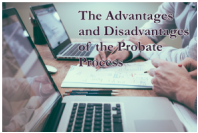
I am getting remarried and I have children from before the marriage, do I need planning?: Yes, in a second marriage, if you want all of your money to go to your spouse or if you want to allow your spouse to remain in your home, but you want to make sure your children get the home after your spouse is deceased, an estate plan is necessary.
Family Hike- woodleywonderworks -CC2.0
- If I have a child from a previous marriage why would I need a will?: In Wisconsin, if you pass away without a will, there are statutes that dictate who will receive your property. In the event that you have a child that is not also your spouse’s child, half of your property would go to your spouse and the other half would go to your child or children. If you want your spouse to have more than half of your property, then you must indicate that desire in a will.
- I want my spouse to be able to stay in our home for life, and then have the home go to my children, how do I do this?: A QTIP trust allows you to leave an asset that you own, such as your home, to your spouse for use during his or her lifetime, and then pass on the property to your children. This process will be discussed further in a future article.
What happens to property that is only in my name?: Wisconsin is a marital property state. That is, any property obtained during the marriage (while in Wisconsin) is presumed to be co-owned with your spouse. This is true even if these assets are titled in the name of just one spouse. However, property from before the marriage, titled in the name of only one spouse, will likely be considered the sole property of that spouse, so long as the property is not co-mingled with the other spouse’s property. It is important, therefore, to consider how you would want your property to pass, and have an attorney examine your beneficiary designations and execute a marital property agreement to ensure that your property will pass in that manner.
What if we want to keep our property separate, to ensure that we can leave our property to our children?: This requires an opt-out marital property agreement. Under an opt-out marital property agreement, all of your assets are divided based on how they are titled. If they are titled in your name, they are your individual property to bequeath as you desire. Similarly, if they are titled in your spouse’s name, they are your spouse’s individual property, to bequeath as your spouse desires.
- Is there any down-side to an opt-out marital property agreement?: The downside of the opt-out marital property agreement is the loss of a tax-friendly provision which allows for a full adjustment in basis on all marital property when one spouse dies. Since your spouse’s property will not be marital property, that property will not receive a new basis like it would when all property is considered marital property.
What if we want to ensure that all of our property goes to our spouse?: This situation requires the opposite of the opt-out marital property agreement described above. An opt-in marital property agreement will allow all of your property, no matter how titled, to be considered to be marital property. This ensures that half of all property will be considered as owned by each spouse, and any surviving spouse can thereby get a new basis in all property on the death of the first spouse to die. Further, it is important to have a new will and/or revocable trust created to assure that your spouse will receive your property when you die.
This has just been a brief glimpse of the estate planning that many individuals need. For more information, please feel free to call Attorney Heller-Neal at (262) 902-0595 or email: [email protected].
Derrick Heller-Neal is a solo lawyer located in Racine, Wisconsin.








 RSS Feed
RSS Feed